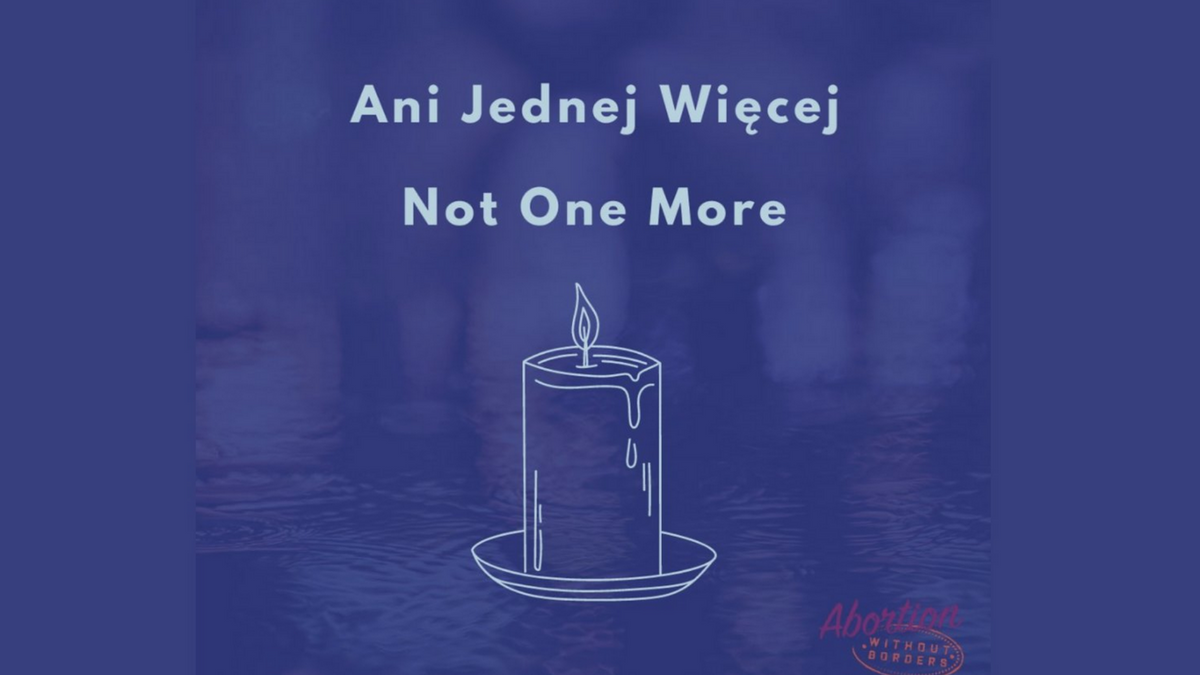Woman Dies after Being Denied Abortion of Non-Viable Pregnancy
The Polish woman may be the first victim of Poland's 2020 abortion laws.

On October 29, 2021, lawyer Jolanta Budzowska tweeted that a 30 year old pregnant woman in Poland had died. The post stated that the patient, who was 22 weeks pregnant, was told she was carrying a non-viable fetus, due to a lack of amniotic fluid (amniotic fluid drain).
Even though abortion laws in Poland are unusually strict, abortions because of fetus malformation used to be one of the few exceptions in which the country’s law allowed for a termination. With this exception now abolished, the pregnant woman was denied an abortion.
According to Budzowska, who specializes in medical malpractice cases, doctors who saw the pregnant woman refused to terminate the nonviable pregnancy, even though it could have put the life of the woman at risk. Their final decision was to wait for the fetus to die on its own.
But the patient (a woman yet to be named, a choice made by the lawyer who sounded the alarm) suffered a septic shock after the fetus had died, and she didn’t survive. She leaves behind a husband and a daughter, according to what her family told the Polish media.
This news comes months after the Polish Constitutional Tribunal abolished almost all exceptions to the abortion ban in January 2021, a change proposed in the middle of a Covid-19 lockdown, despite a national protest by Polish women. The country’s abortion laws are already among the strictest in Europe and the only terminations now allowed are in case of “rape or incest, or if the mother's health is at risk.”
According to Jolanta Budzowska, the death of the pregnant woman was a case of malpractice and a direct consequence of last year's ruling. Her tweet says:
“Consequences of the judgment of the Constitutional Tribunal of October 20, 2020, file ref. K 1/20 in practice. Patient for 22 weeks, anhydrous. Doctors waited for the fetus to die. The fetus died, the patient died. Septic shock. I spent Friday at the prosecutor's office.”
In 2021 the Constitutional Tribunal ruled that abortions in case of fetal defects are "unconstitutional." Many MPs involved in this ruling come from the Law and Justice party—nationalists with a majority in the Polish government who also nominated the majority of judges in the country.
The 2021 judgement was a legal challenge proposed last year against the 1993 law “permitting abortion of severe fetal disabilities” which accounted for about 98% of the terminations that were carried out in Poland. According to the publication Polityka, the legal challenge was made to “protect the lives of conceived children.”
Upon hearing the outcry from women’s rights campaigners about the death of a pregnant woman who could have had her life spared if she had been allowed an abortion, politicians who are said to be involved in the making of this ruling seem to have not “reflected” on the harm that the abortion ban causes women.
Neither the woman’s death, nor the protests organized by Polish women during a lockdown in 2020 which urged the government to reconsider the decision to challenge the 1993 law have persuaded the people in power. A judge at the Constitutional Tribunal, Krystyna Pawłowicz, reacted to the news of the woman’s death: “only people who support abortion are satisfied with the deaths of children.” Leader of the Law and Justice party, Jarosław Kaczyński, said “In my opinion, nothing that would threaten women's interests has happened.”
Adam Easton, a BBC correspondent, analyzed what the 2020 Constitutional Tribunal ruling meant for Polish women: “Almost all legal abortions in Poland are performed on the grounds of foetal defects, so this ruling, which is final and binding, effectively bans pregnancy terminations.”
The author of the Polityka piece adds:
“the abortion could have saved her life [the woman mentioned by Jolanta Budzowska in her tweet]. She may be the first victim of a judgment of the Constitutional Tribunal which stated that termination of pregnancy due to the high probability of severe and irreversible damage to the fetus is against the constitution. The first one we heard about. The question is how many do we not know?”
“During discussions on the draconian project and during powerful social protests, warnings were issued that this law not only condemns women to torture, but also poses a threat to their health and life. They have been disregarded.”
“This is not the first time a woman has died in Poland after being refused an abortion” said Journalist Sian Norris for the Bylines. She continued: “In 2004, 24-year-old Agata Lamczak lost her life after doctors failed to treat her when she developed ulcerative colitis. The doctor cited ‘conscience’ as the reason.”
On November 1, Polish women held vigils in many places around the country in memory of the pregnant woman who had died. The action, called # AniJednejWniej (Not Another One) was organized by the pro-choice campaign Abortion Dream Team. Participants were instructed to ”put candles in the windows and post their photos on the Internet.” Passed by word of mouth in private messages, the action was also supported by women’s groups from other countries, such as Abortion Rights, an organisation based in the UK, which gathered women in front of the Polish Embassy in London and lit candles.
4W provides paid writing work for over 50 women in countries spanning the globe. This work is made possible thanks to our paid monthly subscribers. Join today to support our work!
Enter your email below to sign in or become a 4W member and join the conversation.
(Already did this? Try refreshing the page!)





Comments